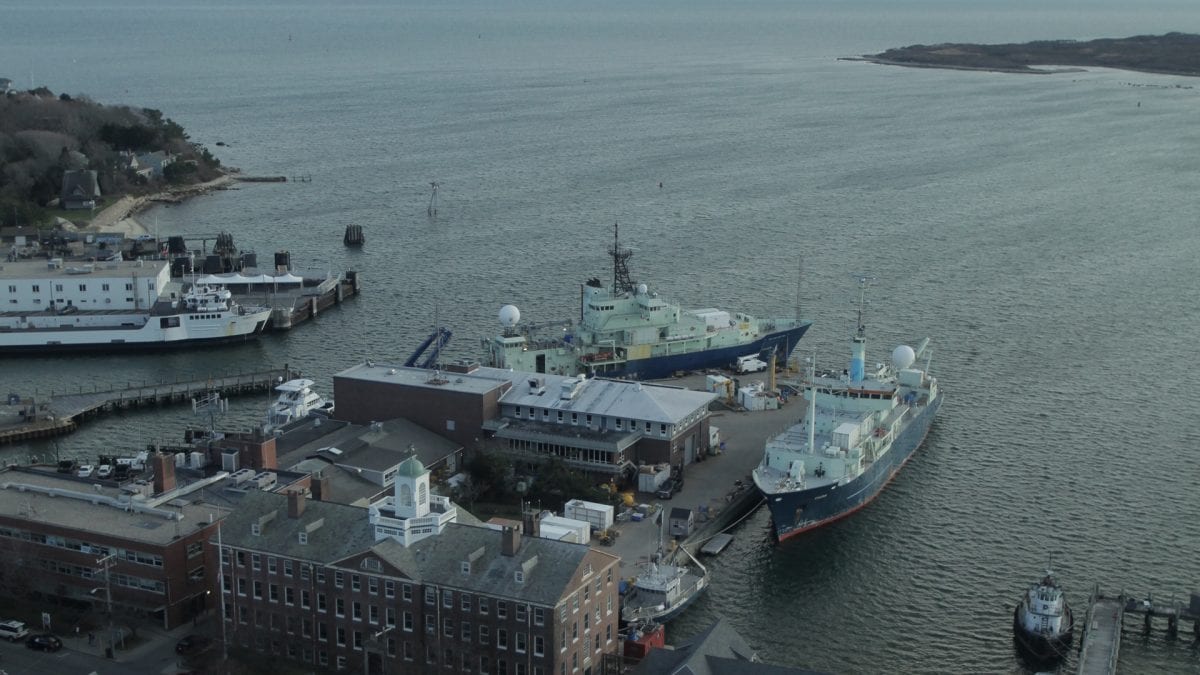CINAR Fellows in Quantitative Fisheries and Ecosystems Science Announced

December 18, 2020
The Cooperative Institute for the North Atlantic Region (CINAR), led by the Woods Hole Oceanographic Institution, and the Northeast Fisheries Science Center are pleased to announce the appointment of five CINAR Fellows in Quantitative Fisheries and Ecosystems Science: Daniel Cullen (University of Maryland Eastern Shore), Gavin Fay (UMass Dartmouth School of Marine Science and Technology), Geneviève Nesslage (University of Maryland Center for Environmental Science), Joshua Stoll (University of Maine), and John Wiedenmann (Rutgers University).
The goal of the fellowship program is to engage early-career scientists in research that supports the training and education of the next generation of stock assessment scientists, ecosystem scientists, and economists, and that improves the assessment and management of living marine resources in the Northeast U.S.
Over $650,000 in funding was provided by NOAA Fisheries QUEST program, the Northeast Fisheries Science Center, and CINAR’s Education program for the two-year fellowships, which support early-career faculty at CINAR partner institutions who are working on assessment- and management-related issues and who are committed to education and training. Each CINAR fellow will be paired with a scientist at the Northeast Fisheries Science Center to further strengthen links among research, assessments, and management in order to advance NOAA’s programmatic goals and research objectives.
Cooperative Institutes (CI) are a group of NOAA-supported non-federal organizations that have established outstanding research and education programs in one or more areas that add significantly to NOAA’s capabilities, and its structure and legal framework facilitate rapid and efficient mobilization of those resources to meet NOAA’s goals in a collection of thematic or regional areas.
CINAR focuses on the Northeast U.S. Shelf Large Marine Ecosystem (NEUS LME), a critical region within the North Atlantic that spans from Cape Hatteras to Nova Scotia and encompassing the continental shelf from the continental slope to the northern wall of the Gulf Stream. The CINAR consortium is led by the Woods Hole Oceanographic Institution (WHOI), and includes the Gulf of Maine Research Institute (GMRI), Rutgers University (Rutgers), University of Maryland Center for Environmental Science (UMCES), University of Maryland Eastern Shore (UMES), University of Massachusetts Dartmouth – School for Marine Science and Technology (SMAST), University of Maine (UMaine), and University of Rhode Island (URI). These organizations were selected from the many potential partners in the region to provide the required breadth, depth, and quality of scientific expertise, instrumentation, models, and facilities to address NOAA’s research needs.
The Northeast Fisheries Science Center is part of the National Oceanic and Atmospheric Administration National Marine Fisheries Service. The Center has conducted a comprehensive marine science program in the Northeast region since 1871. Center scientists study fisheries, protected species, aquaculture, habitat, and coastal communities—all in an ecosystem framework. The science is then provided to decision makers throughout the region. The work of the Center promotes recovery and long-term sustainability of marine life in the region, supports both wild and cultured seafood harvests, helps sustain coastal communities, and generates economic opportunities and benefits from the use and protection of these resources.
More information about the fellowship program and recipients is available on the CINAR website.
The Woods Hole Oceanographic Institution (WHOI) is a private, non-profit organization on Cape Cod, Massachusetts, dedicated to marine research, engineering, and higher education. Established in 1930, its primary mission is to understand the ocean and its interaction with the Earth as a whole, and to communicate an understanding of the ocean’s role in the changing global environment. WHOI’s pioneering discoveries stem from an ideal combination of science and engineering—one that has made it one of the most trusted and technically advanced leaders in basic and applied ocean research and exploration anywhere. WHOI is known for its multidisciplinary approach, superior ship operations, and unparalleled deep-sea robotics capabilities. We play a leading role in ocean observation, and operate the most extensive suite of data-gathering platforms in the world. Top scientists, engineers, and students collaborate on more than 800 concurrent projects worldwide—both above and below the waves—pushing the boundaries of knowledge and possibility. For more information, please visit www.whoi.edu.
